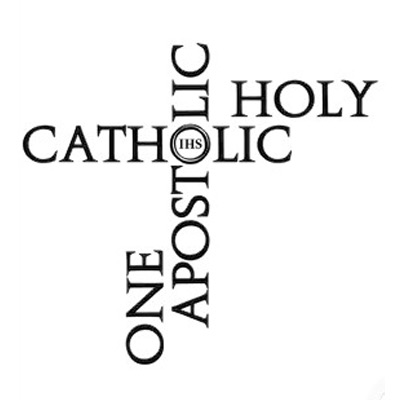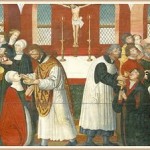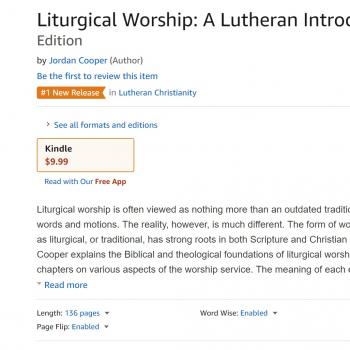 reposted from a Facebook conversation from awhile back; starting in medias res…
reposted from a Facebook conversation from awhile back; starting in medias res…
Catholicam, while it does mean universal, also means “whole.” (Technically, “ecumenical” more literally means “universal.”) With that said, it is important to confess the catholicity of the Church for the simple reason that the opposite of “Catholic” is not “Protestant” but rather “sectarian” or “schismatic.” Thus the weekly (or daily) confession of our belief in the catholicity of the one holy Church does indeed testify to the brethren, the world, and ourselves (for our faith is strengthened through the hearing the words of our own prayers and confessions) that the true Church as the Body of Christ is whole and undivided, despite her external shattered visage.
There is a way in which the term “Christian” — which is obviously a fine term; that’s not what this is about — is also redundant, for the Church has already been identified with Christ in Article II of the Creed. In Article III, however, we are moving on from that to confess the gathering together into the unity of the Church (ecclesiam) by the Spirit through faith. To reiterate, identifying the Church as Christian is certainly no less important a than identifying it as Catholic. But the first identification has already been made by the end of Article II, and the second yet to be made. Thus it is good and right to retain the historic practice of confessing the catholicity of the Christian Church in Article III of the creedalong with her unity, sanctity, and apostolicity. We shouldn’t pit “Christian” against “Catholic” — nor should the detractors from the historic position suggest that this is what’s going on. It is not.
Fr. William Weedon’s take on the situation is spot-on, as per usual:
It all depended — at least in the sixteenth and seventeenth centuries — on whether one was singing in German or in Latin. If the Creed was sung in German — and that means, Luther’s “Wir Glauben All” — then one confessed that the Holy Spirit “die ganz Christenheit auf Erden hält in einen Sinn gar eben.” But if one sang the Latin Creed, then one confessed “unam sanctam catholicam et apostolicam Ecclesiam.” And Lutherans for a couple centuries were totally at ease with confessing it either way; in many services confessing it both ways as the German was often sung by the people after the Latin was led by the choir. The notion that “Christian” is preferred over “Catholic” because that’s how the Creeds were rendered in the German Book of Concord does not jive with the actual history of Lutheran liturgy. (Fr. Weedon’s Blog: “Christliche oder Catholicam?”)
Personally, I always say “Catholic,” for all of the positive reasons given. Hopefully enough people will start to do so in Lutheran parishes across America that a critical mass will be reached (pun intended) and what’s written in the Lutheran Service Book (or what have you) won’t matter that much. Then, the next time the LCMS revises its book, perhaps “Catholic” will be put back.
+SDG+










